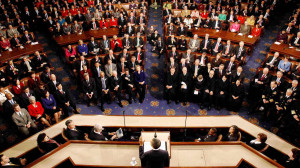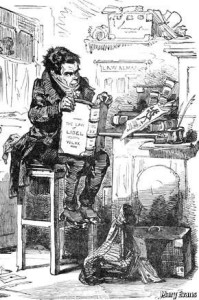When Your Lawyer Dimes You In A Wireless World: Undercover Techniques and White-Collar Investigations
Reading Time: 6 minutes.

It has become commonplace to note the ascendancy in white-collar investigations of techniques previously reserved for investigations of organized crime and violent, life-and-death offenses.
Three recent articles bring the issue around again.
The New York Times notes that More Federal Agencies Are Using Undercover Operations:
The federal government has significantly expanded undercover operations in recent years, with officers from at least 40 agencies posing as business people, welfare recipients, political protesters and even doctors or ministers to ferret out wrongdoing, records and interviews show. . . .
Undercover work, inherently invasive and sometimes dangerous, was once largely the domain of the F.B.I. and a few other law enforcement agencies at the federal level. But outside public view, changes in policies and tactics over the last decade have resulted in undercover teams run by agencies in virtually every corner of the federal government, according to officials, former agents and documents. . . .
Some agency officials say such operations give them a powerful new tool to gather evidence in ways that standard law enforcement methods do not offer, leading to more prosecutions. But the broadened scope of undercover work, which can target specific individuals or categories of possible suspects, also raises concerns about civil liberties abuses and entrapment of unwitting targets. It has also resulted in hidden problems, with money gone missing, investigations compromised and agents sometimes left largely on their own for months.
The Wall Street Journal recently explained how a cooperating witness who was also general counsel of a company wore a video camera while talking with the CEO: DOJ Returns to Bare-Knuckle Tactics in Bribery Case. In particular,
U.S. Justice Department officials have said that despite the setbacks, the use of aggressive law enforcement tactics would continue. Last September, Marshall L. Miller, the deputy chief of the Justice Department’s criminal division, said wiretaps, body wires and physical surveillance “have become a staple in our white collar investigations. I can promise you we will continue to use them.”
Finally, Compliance Week points out that co-employees can be wired up: ‘Extraordinary’ Cooperation Allows SAC Capital Defendant to Avoid Prison .
Among other things, Freeman assisted prosecutors by recording conversations with Longueuil. This led to some extraordinary evidence for prosecutors such as a now-famous recorded statement by Longueuil about how he disposed of an incriminating “log” of insider information that was on a USB flash drive. Longueuil said he took
two pairs of pliers, and then you rip it open. Pulled the external drives apart. … Put ’em into four separate little baggies, and then at 2 a.m. … 2 a.m. on a Friday night, I put this stuff inside my black North Face … jacket, … and leave the apartment and I go on like a 20 block walk around the city … and try to find a, a garbage truck … and threw the sh*t in the back of like random garbage trucks, different garbage trucks … four different garbage trucks.

As a point of personal privilege, I may be excused for cheering the vigor with which federal law-enforcement treats a Joseph A. Bank-wearing white-collar employee as though she or he were an ISIS-trained Bonnie or Clyde. Such an approach generates more work for me and my fellow white-collar defense lawyers. There is much to be said for that prospect.
As a policy matter, however, what is the significance of the use of traditional organize crime techniques against business people? And what is the significance of this phenomenon for those people and the businesses they try to advance?
There are doubtless multiple significant – and, as yet, unknowable – aspects to this practice. The most obvious aspect, however, is the continued erosion of the distinction between violent and nonviolent crime for purposes of investigation, indictment and sentencing. When a prosecutor – or any lawyer – uses the same tool in Case A and Case B, by definition he or she sees those two cases to be substantively and procedurally analogous. (Otherwise, it would be a waste of time to use the same two in both cases).
In light of the power that a federal prosecutor wields, the erosion of that distinction can lead to an overbroad reading of the criminal statutes and related regulations. Many of those statutes are already broad, indecipherable and protean by virtue of the fact that Congress drafted them.

In that regard, political bloodlust that can arise on certain topics. Child pornography is one. Crime-in-the-suites is another. Political bloodlust is an important aspect of our consideration of the application of organized crime investigatory techniques to business offenses. Being “tough on crime” is rarely a political loser; being tough on sound-bites and abstractions such as “Wall Street,” “bankers” or “polluters” is equally attractive to federal legislators.
In addition, the erosion of the distinction is cheered on by the most sophisticated members of the plaintiffs’ bar as well as by single-issue activists who otherwise would have little or nothing to do with the criminal law.
So what? If a tool can investigate and prevent one type of crime, why not apply it to another type of crime? Why should a white-collar defendant get a pass from the rough-and-tumble techniques used on Banjo the Meth Dealer? In any event, one might argue, there are safeguards already in place with regard to these techniques, without regard to the subjects of the investigation.
In other words, why is Sharman so wrapped around the axle on this question?
Unwrapping myself from the axle, I identify at least four separate problems here.
First, erosion of the distinction between street crime and “suite crime” skews the selection of cases to prosecute. In particular, questions of intent with regard to street crime, while certainly present, rarely pose the same kinds of nuances and knotty problems that the question of intent presents in white-collar cases.
Second, as illustrated by the Wall Street Journal article, erosion of the distinction implicates the attorney-client privilege:
Within the Treasury Department, undercover agents at the I.R.S., for example, appear to have far more latitude than do those at many other agencies. I.R.S. rules say that, with prior approval, “an undercover employee or cooperating private individual may pose as an attorney, physician, clergyman or member of the news media.”
An I.R.S. spokesman acknowledged that undercover investigators are allowed to pose in such roles with approval from senior officials. But the agency said in a statement that senior officials “are not aware of any investigations where special agents have ever posed as attorneys, physicians, members of the clergy or members of the press specifically to gain information from a privileged relationship.”
The agency declined to say whether I.R.S. undercover agents have posed in these roles in an effort to get information that was not considered “privileged,” meaning the type of confidential information someone shares with a lawyer or doctor.

Banjo the Meth Dealer may have “counselors,” but they are likely to be chosen because they are armed, inked and loyal, rather than for their legal advice. (Of those three qualities, I claim one but decline to identify it). When a company’s general counsel videos his CEO; when IRS agents can permissibly pose as attorneys; or when HHS OIG agents as physicians, we have entered a world that is deeply threatening to perhaps the oldest privilege in Anglo-American law.
Third, the proliferation of undercover agents and secret monitoring can result in a bitter comedy of errors. The Journal, again:
Across the federal government, undercover work has become common enough that undercover agents sometimes find themselves investigating a supposed criminal who turns out to be someone from a different agency, law enforcement officials said. In a few situations, agents have even drawn their weapons on each other before realizing that both worked for the federal government.
One is put in mind of the fine mob movie The Departed with Jack Nicholson and Leonard DiCaprio, in which Nicholson’s character (somewhat reminiscent of Whitey Bulger) has a gang in which almost everyone is working for a state or federal agency:
Fourth, sound discretion and public perceptions of justice are skewed when federal investigatory entities get at least a portion of their funding from successful undercover activity and other secret operations. This system, even with some checks and balances, is not an incentive but, rather, an outright bounty.

You can always follow our advice about preserving the attorney-client privilege. Barring a political and technological sea-change, however, there is no reason American companies should expect that the government’s hunger to use mob-oriented techniques in the business context will abate any time soon.